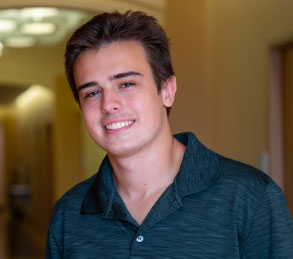Greensboro College Offers Courses to the Public for Spring 2019 Semester
GREENSBORO, N.C. – Registration opens to the public today for five Greensboro College courses being offered for the Spring 2019 semester.
They are:
- SSC3300, “Holocaust and Genocide,” 3:15-4:45 p.m. Tuesdays and Thursdays Jan. 10 through April 25. (4 credit hours)
- ECM2170, “Topics in Film: The Post-Human,” 5-6:20 p.m. Mondays and Wednesdays, Jan. 9-April 24. (4 credit hours)
- HIS/POL3340, “American Foreign Relations Since 1945,” 11 a.m.-noon Mondays, Wednesdays and Fridays, Jan. 9-April 26. (4 credit hours)
- BUS3420, “Multimedia Presentations,” 6:30-8:50 p.m. Wednesdays, Jan. 9-April 24. (4 credit hours)
- BUS4500, “Leadership Fitness,” 5:30-8:20 p.m. Wednesdays, Jan. 9-April 24. (4 credit hours)
“Holocaust and Genocide,” team-taught by world-renowned Holocaust scholar Karl Schleunes and Professor of Art Jim Langer, will examine those topics from the standpoint of two different disciplines.
Students, whether enrolled for credit or audit, will conduct an interactive research project that is designed to increase understanding of the plight and conditions of Holocaust victims and/or Holocaust bystanders, relying on the resources of the college’s Levy-Lowenstein Holocaust Collection, housed in the college’s J.A. Jones Library. That collection was created and endowed by Jane and Richard Levy of Greensboro.
This year, the course also will examine the Holocaust and genocide from the standpoint of art and will wrestle with some of the difficult questions such art can raise.
The class will view and discuss the meaning and effects of Holocaust-themed artworks, from drawings and prints, paintings and sculptures, to contemporary and more recent films and performances on video by survivors, gallery artists and collectives.
What are the aesthetic, non-formal demands of art dealing with such deeply traumatic and unspeakable crimes? Do critics such as the playwright David Mamet (whose family was partly lost in the camps) have a point that we are debasing the memory of victims, and debased by the creation of Holocaust-themed films, including “Schindler’s List,” notwithstanding Steven Spielberg’s unstinting support for major archives and documenting of survivors’ stories?
And can there be formal, aesthetic beauty in the art of Jewish artists who deal directly or obliquely with unfathomable tragedy on a massive scale, as against the famous dictum of Theodore Adorno, who said, “Writing poetry after Auschwitz is barbaric”? Does the opposing neoclassical art of the Nazis come across as disturbing in its own “beauty”? If so, why? Where does propaganda begin when one aspires to make something artistic from the ashes of horror?
Greensboro College’s annual Schleunes Lecture on the Holocaust and Genocide is named in Professor Schleunes’s honor, and students will attend that lecture.
“Topics in Film: The Post-Human” asks: What does it mean to be post-human? One thing we know for certain is that “we” are no longer who “we” once believed ourselves to be. In this course, the class will screen, read, and theorize about the radically altering interface between human and machine, especially as that interface has played out in film and television. Class members also will try writing their own screenplays about that interface.
Questions the class will address include: How has technology’s reshaping of what it means to be human played out in film? How does technology alter our identity, our agency, even our sense of what it means to “be”? This course will be part film analysis, part creative writing, part philosophy, and ultimately all mind-bending.
The course offers English, Communication and Media Studies credit but also is perfect for students interested in visual media, technology, philosophy, and even urban ecology.
“American Foreign Relations Since 1945” examines American foreign policy, diplomatic, economic, and military, from the end of World War II to the present, spending a good deal of time on the Vietnam War, the war in Iraq, and the war on terrorism. In all of these, students will analyze and evaluate the big-picture policy as well as try to understand the experience of American servicemen and -women from the ground up.
Each student will interview an American veteran who served since 1945 for inclusion in the Library of Congress’s American Veterans’ History Project and have the opportunity to teach the class on a topic of the student’s choosing twice during the semester. Students also will debate in teams about American policy during the Cuban Missile Crisis in 1962 and toward North Korean nuclear proliferation since 2008.
Students also will write a research paper on a topic of their choosing that builds off of course content. The paper will have constituent graded parts due over the course of the semester. Those seeking academic credit for this course can receive it in either history or political science.
“Multimedia Presentations” will teach students both oral presentation skills and how to create multimedia marketing presentations so as to be able to present effectively on their ideal job or business.
“Leadership Fitness” is an ideal course for students interested in leadership and developing a sense of informed citizenship by focusing on the qualities of time management, career success, integrity, perseverance, and how to build hope and organizational vision.
The course is being taught by adjunct instructor Bill Lam, head wrestling coach and cross-country coach at the University of North Carolina at Chapel Hill from 1972 to 2004. He will focus on focus on leadership topics developed by one of his mentors and colleagues, Homer Rice, former athletics director at UNC-Chapel Hill and Georgia Tech, as found in Rice’s book “Leadership Fitness: Developing and Reinforcing Successful, Positive Leaders.”
Tuition for adults taking undergraduate courses for credit is $370 per credit hour, or $1,480 for any of these 4-credit-hour courses. Senior citizens pay $75 per credit hour, or $300 for any of these 4-credit-hour courses. Adults of any age may audit these courses for $75 per credit hour, or $300 for any of these 4-credit-hour courses. Please visit https://www.greensboro.edu/admissions-info/tuition-fees/ for more information on tuition and fees.
Those interested in any of these courses should contact Becky Quigley at 336-272-7102, ext. 5210, or rebecca.quigley@greensboro.edu. To register, visit:
- https://tinyurl.com/GSOaudit if you intend to audit a course, or
- https://tinyurl.com/Non-DegreeUG if you intend to seek academic credit.
All students should register before Dec. 19, when the college closes for the semester break.
Greensboro College provides a liberal arts education grounded in the traditions of the United Methodist Church and fosters the intellectual, social, and, spiritual development of all students while supporting their individual needs.
Founded in 1838 and located in downtown Greensboro, the college enrolls about 1,000 students from 29 states and territories, the District of Columbia, and seven foreign countries in its undergraduate liberal-arts program and six master’s degree programs. In addition to rigorous academics and a well-supported Honors program, the school features a 17-sport NCAA Division III athletic program and dozens of service and recreational opportunities. Learn more at www.greensboro.edu.
Think critically. Act justly. Live faithfully.
###
Media Contact:
Lex Alexander, Director of Communications
lex.alexander@greensboro.edu
Greensboro College
815 W. Market St.
Greensboro, NC 27401
336-272-7102, ext. 5398
Cell: 336-707-6617
www.greensboro.edu
Facebook: www.facebook.com/GreensboroCollege
Twitter: @GCPride
Instagram: www.instagram.com/greensborocollege

